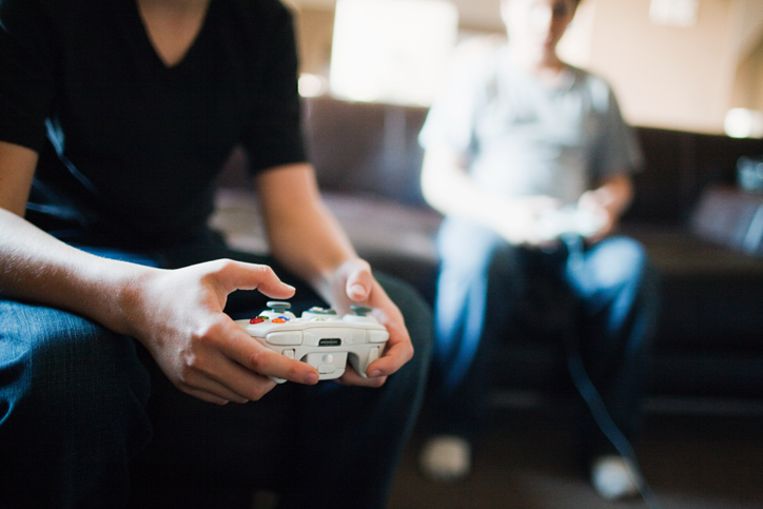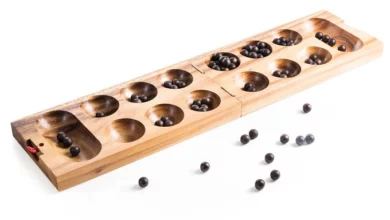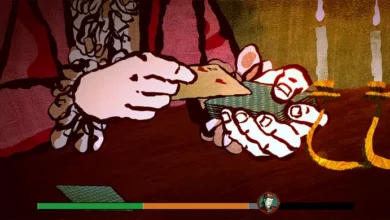Why gaming is good for you

Meanwhile, we all know the stories about the – largely unproven and at least limited – Influence of video games on aggression and addiction. But there are also – we even dare say: especially – positive effects attached to gaming.
These are the six most important ones.
You make friends
Since video games can be played online, now for about fifteen to twenty years, there are fairly close ‘communities’ of players starting to form on the internet: like-minded souls, who meet each other online, and while they palatize about their favourite game sometimes develop close friendships. At times they make great effort to see each other in real life: that determines, among other things, the success of festivals such as Gamescom in Cologne, where 245,000 gamers come together every year. Or Blizzcon, an annual fan festival of the Blizzard Entertainment game label (known from ‘Overwatch’ and ‘World of Warcraft’), where people who played the games together often meet for the first time.
According to research by the Ghent professor Jeroen Bourgonjon, who for years collected data on online forums for gamers, at least a third of the players think that games have a positive influence on their lives by the friends they make. “These friendships are not necessarily superficial,” says Bourgonjon. “For example, we have often discovered in our research that some invite their fellow gamers to their marriage. It is also striking that people in the games they play often get to know people from very different social circles, with whom they might never have befriended in real life.”
You learn things
Some games bring you insights on how the world or society works. Games such as ‘Civilization VI’, for example, in which you have to build an entire civilization from the Stone Age to the present, you learn things about history and political structures. Meanwhile, eleven ‘Assassin’s Creed’ games help players learn about world history because they play in historical eras like the crusades, the French and American revolutions and – recently in ‘Assassin’s Creed: Odyssey’ – the Peloponnesian wars in ancient Greece.
“Sometimes they are seemingly insignificant things that you learn in a game”, says Bourgonjon. “For example, players indicate that they have learned through Pokémon that water conducts electricity, because during battles with their monster’s elements such as water and lightning are used against each other. Many gamers also indicate that they have learned things about the world wars in shooters like ‘Battlefield’. You always take something with you, and it’s often very schooly things that you learn.”
You escape from everyday life for a moment
Games let you escape from reality and let you lead new lives in new worlds. You can be a superhero, a top football player, a special forces commando, an outlaw in the wild west of ‘Red Dead Redemption II’: things that you might not be in real life. Moreover, the story of a game and the world that the creators have designed for you, take you away from your daily life for a while.
“In some cases, it is even a kind of self-medication,” says Bourgonjon. “One player, for example, indicated that he once decided to abandon a suicide attempt because he had himself absorbed in the game “Final Fantasy VII”. Sometimes it can do well to disappear in a world where the rules are clear.”
Your view of the world becomes broader
According to Bourgonjon, we should also remember that games are a cultural product, just like films, novels and TV series. And that they, like those other media, can help to widen the player’s view of the world. Games like the recent ‘Gris’, for example, make you think about feelings like sadness that are depicted by the environment of the game. “Players indicate, among other things, that through games they have revised their point of view on the world,” says Bourgonjon. “It is difficult to measure how much a cultural product you develop or why art is good for us, but it comes down to seeing new perspectives. You get to know the world and yourself better through some games.”
According to Bourgonjon, we should also remember that games are a cultural product, just like films, novels and TV series. And that they, like those other media, can help to widen the player’s view of the world. Games like the recent ‘Gris’, for example, make you think about feelings like sadness that are depicted by the environment of the game. “Players indicate, among other things, that through games they have revised their point of view on the world,” says Bourgonjon. “It is difficult to measure how much a cultural product you develop or why art is good for us, but it comes down to seeing new perspectives. You get to know the world and yourself better through some games.”
You become a better person
In video games with a story you sometimes have to make heart-rending choices. In ‘The Walking Dead’, a game conceived as a ‘series’ based on the comic strips and TV series of the same name, characters sometimes have to be sacrificed to save others. That kind of moral choices turns up in numerous game sequences, such as Fallout, Mass Effect and Bioshock. In contrast to films, TV series, books or other narrative media, where the final decision in the dilemmas for which the characters stand is taken by the author, the player in a game often gets that freedom of choice.
“You are also immediately confronted with the consequences of your choice,” says Bourgonjon. “That’s a powerful element. Moral improvement is therefore definitely an effect of some games. Games can be very convincing in their interplay between story, image and game rules. Who plays ‘Super Mario Bros’ for the first time, learns in twenty seconds that his character dies when it runs against the walking mushroom but can turn it away by jumping over it. With the same persuasiveness, some games also set you up for moral trials.”
You learn to solve problems
Puzzle games, in which solutions have to be found for visual brain teasers, have been growing strongly in recent years, thanks to the advance of smartphones games. Recent highlights include ‘Monument Valley’ and ‘Gorogoa’, games in which environments have to be manipulated and objects are brought together in jigsaw puzzles with different depths. Such puzzle sequences are also featured in distinct action games such as ‘Shadow of the Tomb Raider’ and ‘God of War’, in which giant machines often have to be run again in order to be able to continue in the game.
“But according to many studies, the effect of these puzzles is rather small,” says Bourgonjon. “The true influence of games on our problem-solving skills lies in something that is actually in every game: you have to recapture yourself the mechanics of every new game. You play against the software.”




